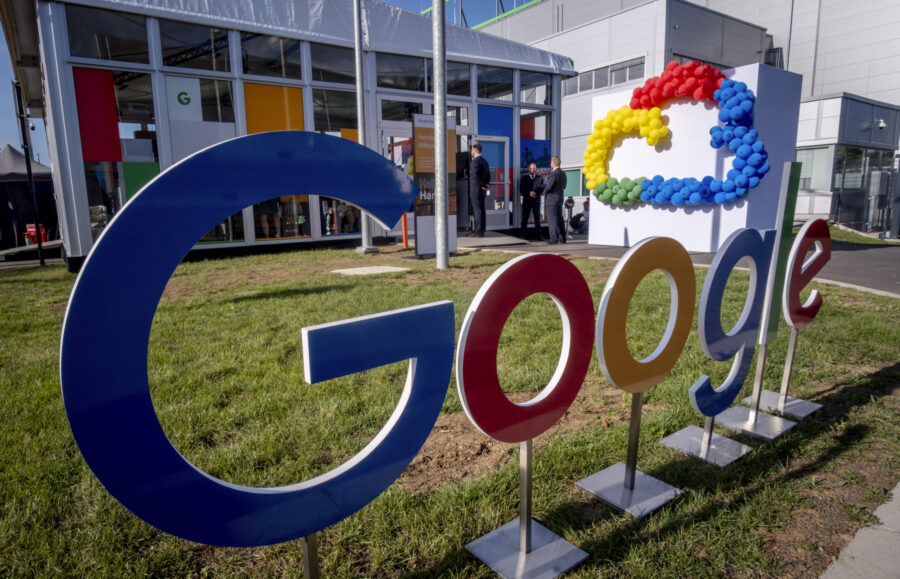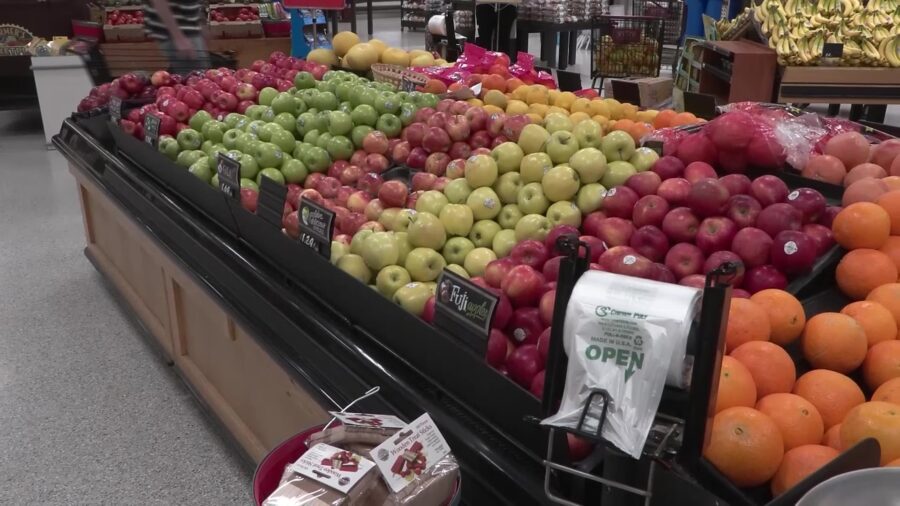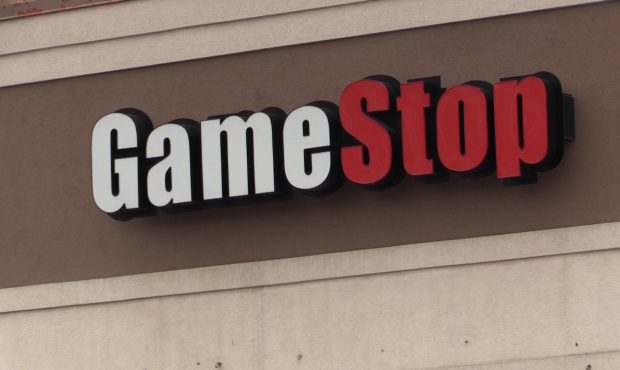Google, Justice Department make final arguments about whether search engine is a monopoly
May 3, 2024, 6:21 PM

FILE - Google's first datacenter in Germany is pictured during its inauguration in Hanau near Frankfurt, Germany, Oct. 6, 2023. New European Union rules aimed at preventing tech companies from dominating digital markets will change what people see online starting Thursday, March 7, 2024. (AP Photo/Michael Probst, File)
(AP Photo/Michael Probst, File)
WASHINGTON (AP) — Google’s preeminence as an internet search engine is an illegal monopoly propped up by more than $20 billion spent each year by the tech giant to lock out competition, Justice Department lawyers argued at the closings of a high-stakes antitrust lawsuit.
Google, on the other hand, maintains that its ubiquity flows from its excellence, and its ability to deliver results customers are looking for.
“It would be an unprecedented decision to punish a company for winning on the merits,” Google’s lawyer, John Schmidtlein, said late Friday afternoon in summation of the company’s closing arguments.
Justice Department lawyer Ken Dintzer told the judge that “today must be the day” for him to step in and stop Google’s monopolistic behavior, which he likened to the tactics used by Microsoft two decades ago that prompted a similar antitrust battle.
The U.S. government, a coalition of states and Google all made their closing arguments Friday in the 10-week lawsuit to U.S. District Judge Amit Mehta, who must now decide whether Google broke the law in maintaining a monopoly status as a search engine.
Much of the case, the biggest antitrust trial in more than two decades, has revolved around how much Google derives its strength from contracts it has in place with companies like Apple to make Google the default search engine preloaded on cellphones and computers.
At trial, evidence showed that Google spends more than $20 billion a year on such contracts. Justice Department lawyers have said the huge sum is indicative of how important it is for Google to make itself the default search engine and block competitors from getting a foothold.
Google responds that customers could easily click away to other search engines if they wanted, but that consumers invariably prefer Google. Companies like Apple testified at trial that they partner with Google because they consider its search engine to be superior.
Google also argues that the government defines the search engine market too narrowly. While it does hold a dominant position over other general search engines like Bing and Yahoo, Google says it faces much more intense competition when consumers make targeted searches. For instance, the tech giant says shoppers may be more likely to search for products on Amazon than Google, vacation planners may run their searches on AirBnB, and hungry diners may be more likely to search for a restaurant on Yelp.
And Google has said that social media companies like Facebook and TikTok also present fierce competition.
During Friday’s arguments, Mehta questioned whether some of those other companies are really in the same market. He said social media companies can generate ad revenue by trying to present ads that seem to match a consumer’s interest. But he said Google can place ads in front of consumers in direct response to queries they submit.
“It’s only Google where we can see that directly declared intent,” Mehta said.
My wife has only worked at Google and Microsoft since we’ve lived here. If she was the GC of either of those companies, i would not be talking to you peasants 😭. I woulda hopped in my monopoly car and never returned https://t.co/WOb07nkprw pic.twitter.com/vM0MdINjkJ
— That Fred Character (@Frediculous) May 3, 2024
Schmidtlein responded that social media companies “have lots and lots of information about your interests that I would say is just as powerful.”
The company has also argued that its market strength is tenuous as the internet continually remakes itself. Earlier in the trial, it noted that many experts once considered it irrefutable that Yahoo would always be dominant in search. Today, it said that younger tech consumers sometimes think of Google as “Grandpa Google.”
Government lawyers also argued the tech company should be sanctioned for the “systemic destruction of documents” that they argue was done to purposefully hide evidence of monopolistic intent and practices.
Trial evidence showed that Google lawyers recommended employees ensure that their work chats were not saved because of their potential legal implications.
The government asked Mehta to impose a sanction that allows the judge to infer that all the deleted chats were unfavorable to Google regarding their anticompetitive intent.
Mehta said he was unsure whether he would grant the government’s request but he was sharply critical of their document-retention practices and speculated that there ought to be some kind of sanction.
“Google’s document retention policy leaves a lot to be desired,” he said. “It’s shocking to me, or surprising to me, that a company would leave it to its employees to decide when to preserve documents.”
Google lawyer Colette Connor defended the company’s practice of generally failing to preserve internal company chats. “Given the typical use of chats, it was reasonable,” she said.
While Google’s search services are free to consumers, the company generates revenue from searches by selling ads that accompany a user’s search results.
Justice Department attorney David Dahlquist said during Friday’s arguments that Google was able to increase its ad revenue through growth in the number of queries submitted until about 2015 when query growth slowed and they needed to make more money on each search.
The government argues that Google’s search engine monopoly allows it to charge artificially higher prices to advertisers, which eventually carry over to consumers.
“Price increases should be bounded by competition,” Dahlquist said. “It should be the market deciding what the price increases are.”
Dahlquist said internal Google documents show that the company, unencumbered by any real competition, began tweaking its ad algorithms to sometimes provide worse search ad results to users if it would increase revenue.
Google’s lawyer, Schmidtlein, said the record shows that its search ads have become more effective and more helpful to consumers over time, increasing from a 10% click rate to 30%.
Mehta has not yet said when he will rule, though there is an expectation that it may take several months.
If he finds that Google violated the law, he would then schedule a “remedies” phase of the trial to determine what should be done to bolster competition in the search-engine market. The government has not yet said what kind of remedy it would seek.













